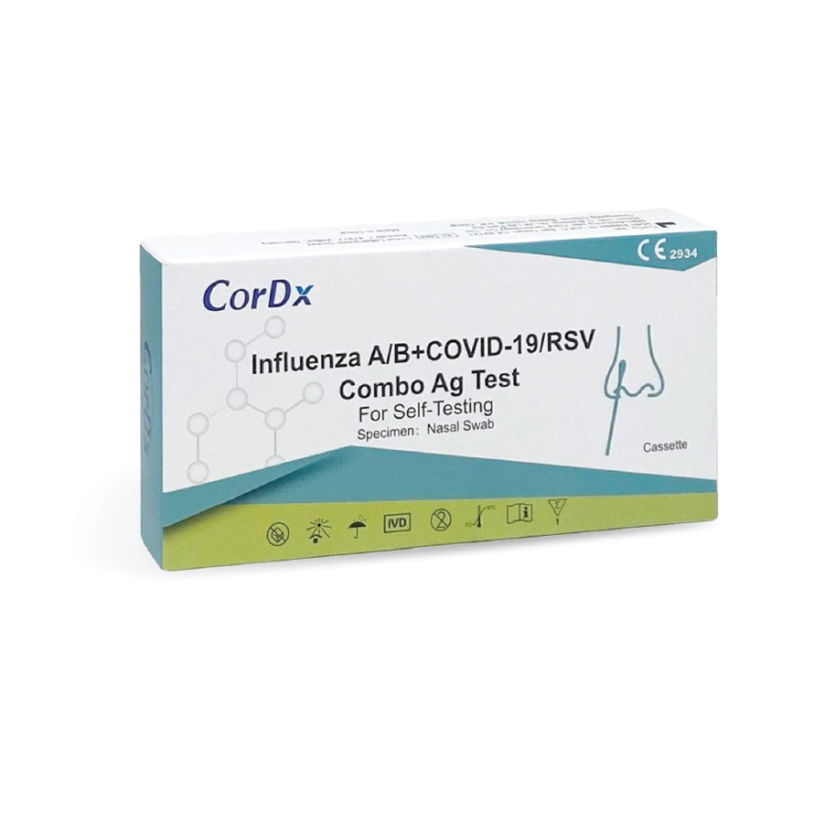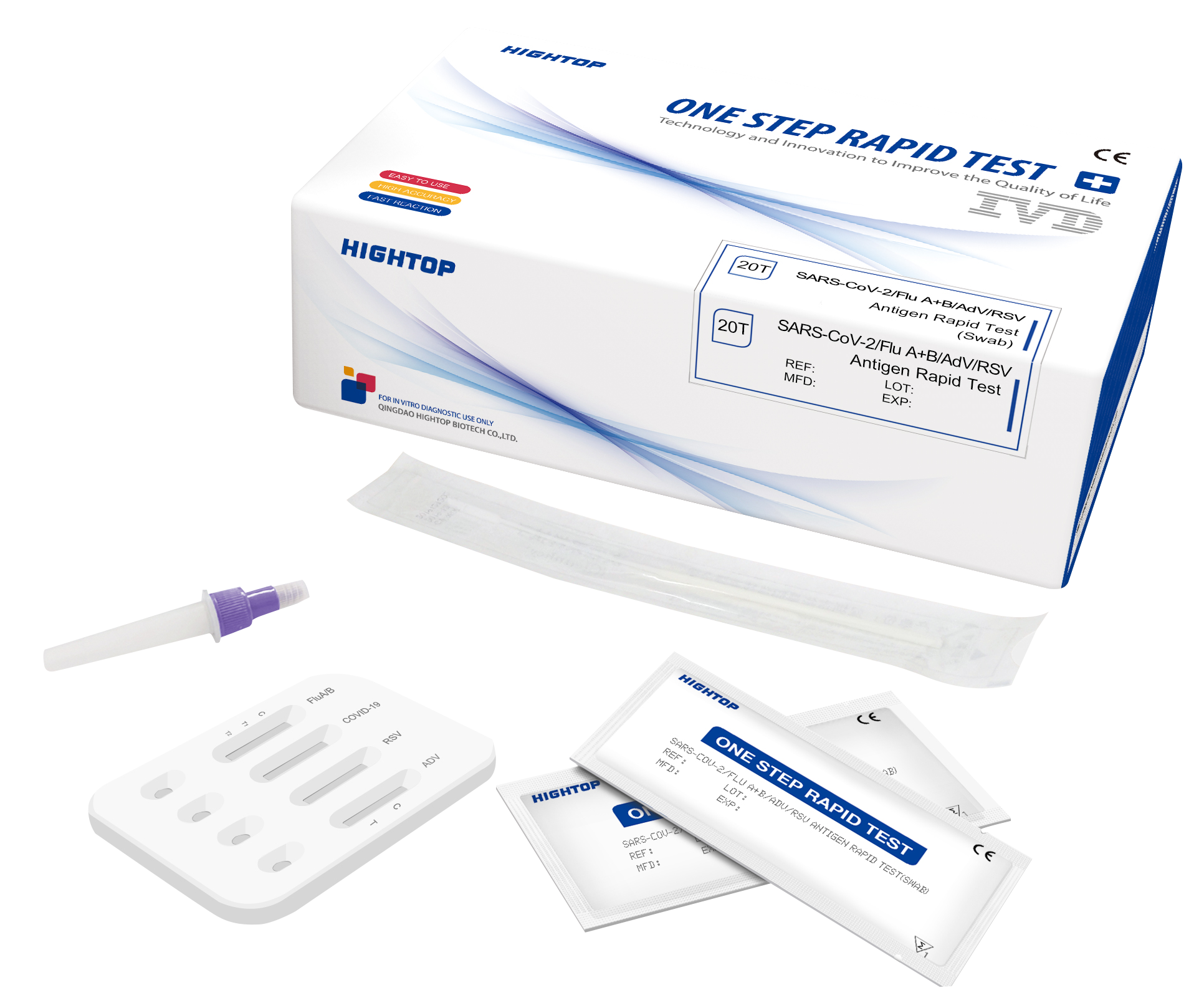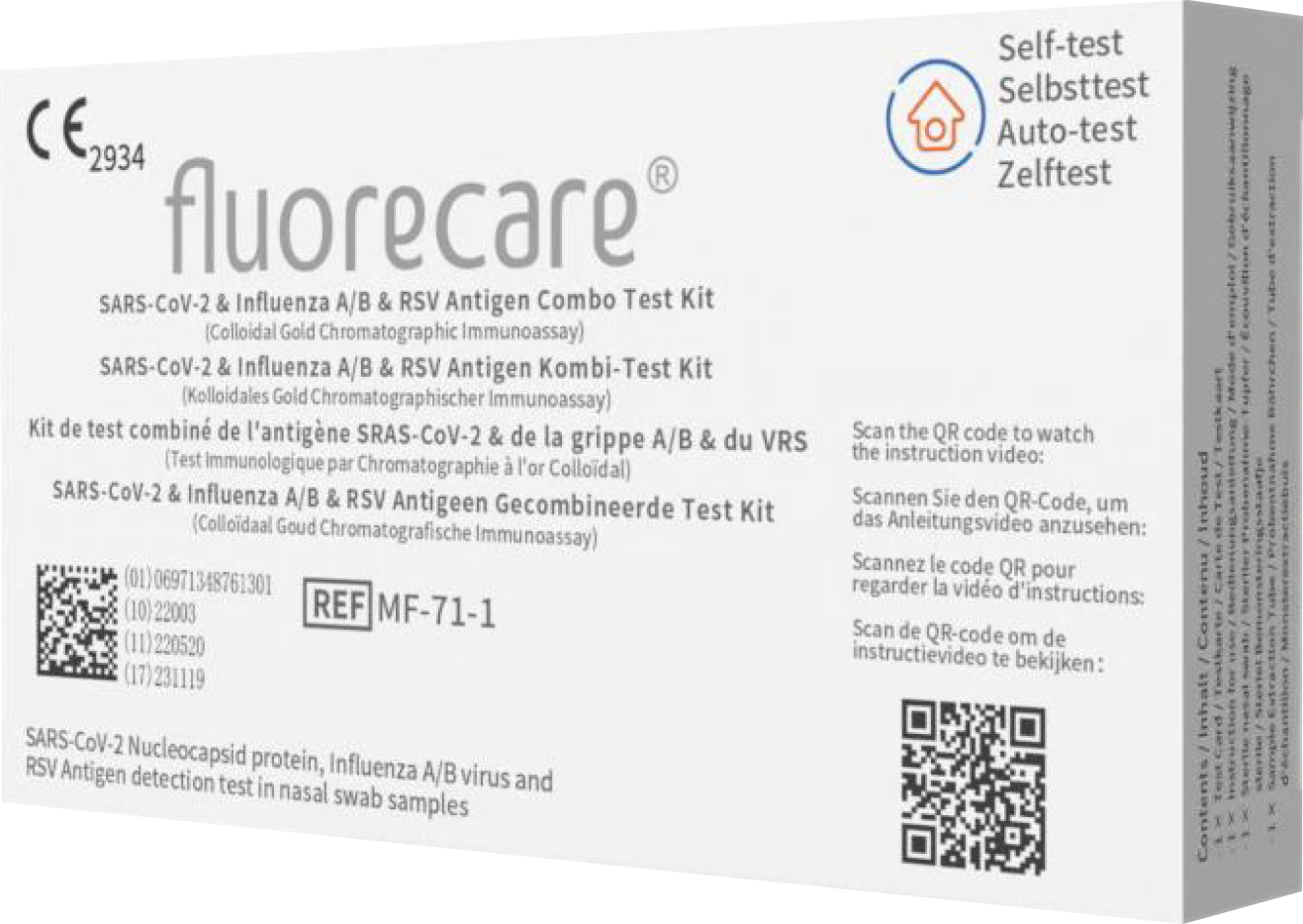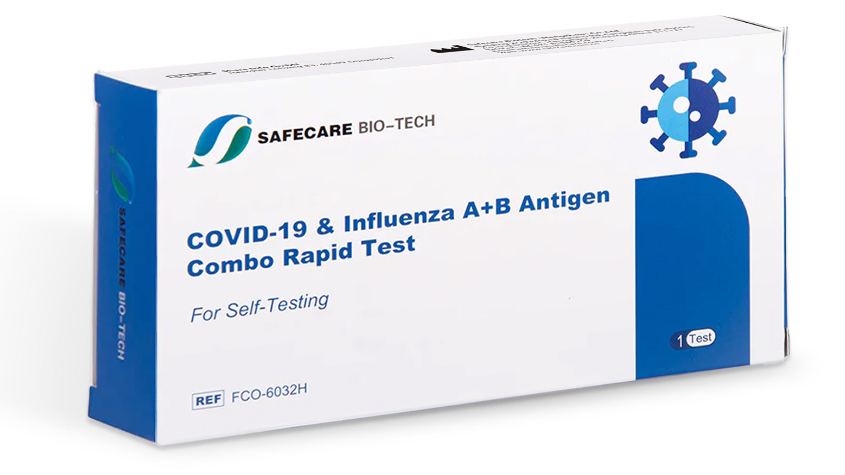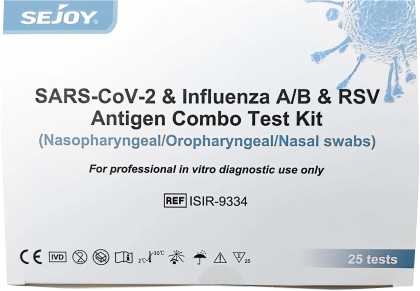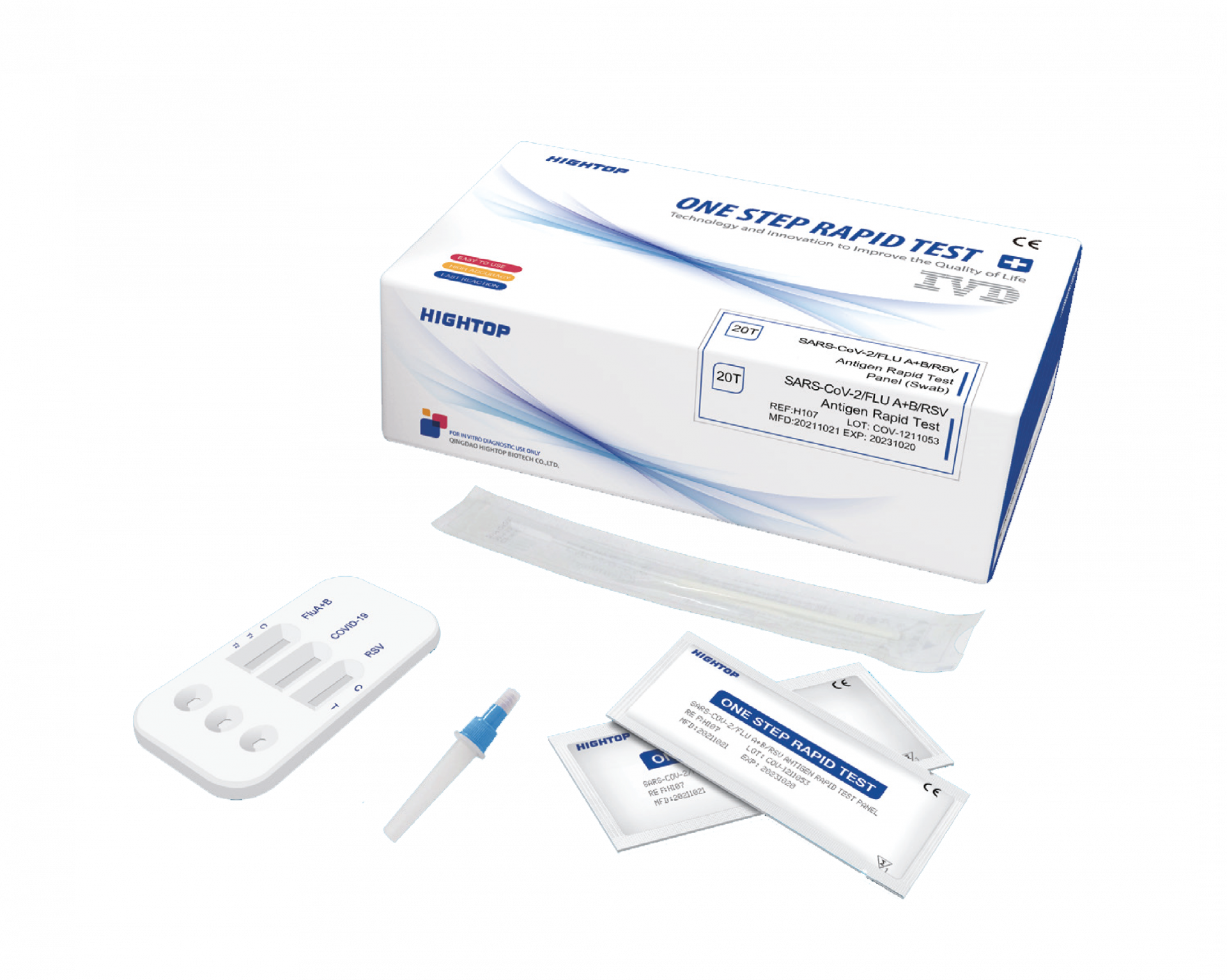Influenza Test
The Influenza Test is a diagnostic tool designed for swiftly detecting influenza virus antigens, enabling rapid identification of flu cases. Our commitment is to deliver healthcare providers, clinics, and hospitals the best-of-class influenza tests. Fast results empower healthcare professionals to initiate treatment promptly, manage outbreaks, and differentiate flu from similar respiratory infections, enhancing patient care and reducing epidemic risks.
Recommended Solutions for Accurate Influenza Kit Tests
We are pleased to continue providing you with Influenza Kit Tests (Professional & At-home tests), Combo Test Kits, and RSV Combo Tests so you can ensure timely and reliable Influenza A/Bdetection.
FAQ for Influenza Test - Flu Antigen Test
The available Influenza Test helps promptly detect Flu A/B cases and manage outbreaks effectively. Typically, samples are taken using nasal or throat swabs. The leading methods are laboratory-based antigen assays and point-of-care rapid tests. Find more details here on test sensitivity, specificity, and reliability, along with FAQs providing step-by-step guidelines for correct usage and interpretation.
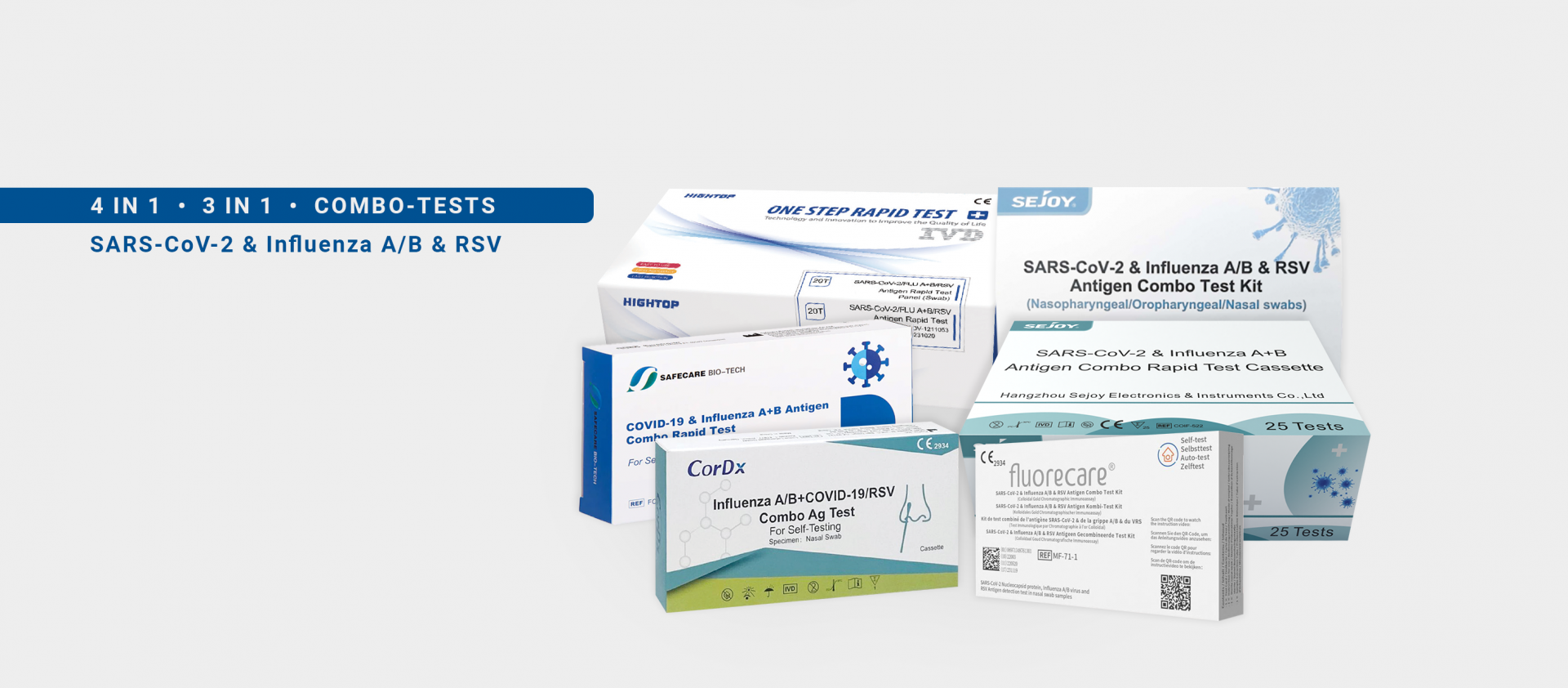
- What varieties of Influenza test kits are available, and how do they differ?
- How can I evaluate the reliability of Influenza Antigen Tests?
- How do Influenza Rapid Tests detect infections?
- Who should consider using Influenza A/B antigen test kits?
- What is the accuracy of Flu A/B rapid antigen tests?
- What does an influenza-positive test result mean?
- Why are Influenza A/B diagnostic tests essential for public health?
- Do you offer other infectious disease tests and a ranking of the best?
- Where can I find a comprehensive comparison of Influezna test kits?
What varieties of Influenza test kits are available, and how do they differ?
The varieties available include rapid antigen tests, molecular (PCR) tests, and combo assays that detect both influenza and other respiratory viruses like RSV and COVID-19. They differ in testing time, sensitivity, and intended use (point-of-care versus laboratory-based).
Rapid Antigen Tests
These flu tests detect influenza virus antigens in respiratory samples, providing results in 15-30 minutes. They are ideal for quick screening at point-of-care settings but have lower sensitivity compared to PCR tests.
Molecular (PCR) Tests
PCR tests identify influenza virus RNA with high sensitivity and specificity. Considered the diagnostic gold standard, they require laboratory processing and deliver results within a few hours to days.
Combo Assays
These tests identify multiple pathogens, such as Influenza A/B, RSV, and SARS-CoV-2, from a single sample. They offer comprehensive diagnostics, helping differentiate infections with similar symptoms for better treatment decisions.
How can I evaluate the reliability of Influenza Antigen Tests?
To evaluate the reliability of Influenza Antigen Tests, check for FDA or CE approval, review sensitivity and specificity data, consult independent expert studies, and verify inclusion on the EU Common List for rapid tests.
How do Influenza Rapid Tests detect infections?
Influenza tests detect infections by identifying viral components—most commonly antigens or RNA—in respiratory samples (e.g., nasal or throat swabs), indicating the presence of the influenza virus.
Who should consider using Influenza A/B antigen test kits?
Healthcare providers, clinics, hospitals, and public health professionals should consider using Influenza A and B antigen test kits for rapid screening, early diagnosis, and effective outbreak management.
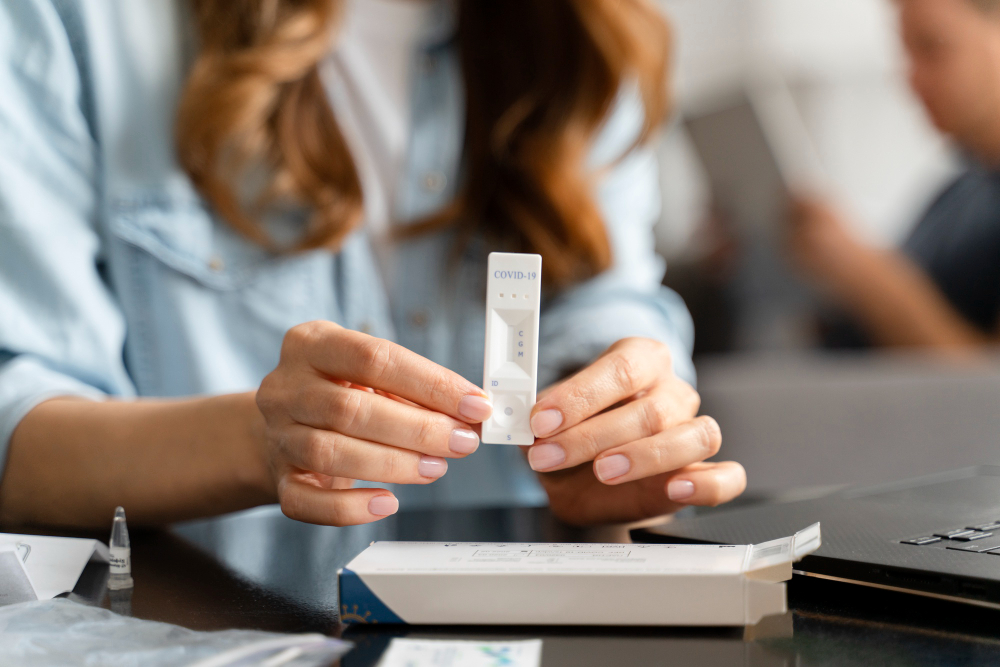
What is the accuracy of Flu A/B rapid antigen tests?
Flu A/B rapid antigen tests typically offer high specificity, while sensitivity can vary (often between 80% and 99%); actual performance depends on factors like specimen quality and time of testing relative to symptom onset.
What does an influenza-positive test result mean?
An influenza-positive result means that viral antigens were detected in the sample, suggesting an active influenza infection. Clinical context and, when necessary, confirmatory tests should be considered for accurate diagnosis.
Why are Influenza A/B diagnostic tests essential for public health?
Influenza A/B diagnostic tests are essential for public health because they enable timely detection, allow for prompt treatment and isolation measures, and help control outbreaks by providing rapid, actionable results.
Do you offer other infectious disease tests and a ranking of the best?
Yes, we do offer more infectious disease tests :
RSV Test
Best Product: Cordx 4in1
Self-Test (RSV | Influenza A/B | SARS-CoV-2)
Source: Best RSV Tests
Combo Test
Best Product: Sejoy
SARS-CoV-2 influenza a+b RSV antigen 4 in 1 combo rapid Test
Source: Best
Combo test kits
COVID-19 Tests (At-home tests) & Covid-19 Professional Test Kits:
Best Covid-19 Self-Test Kits (At-home Tests): DeepBlue COVID-19 (SARS-CoV-2) Antigen Self-Test
Best Covid-19 Product Professional Use: Sejoy Rapid Combo Test 3 in 1 SARS-CoV-2 | Influenza A | Influenza B
Source: Best Covid Tests
Where can I find a comprehensive comparison of Influezna test kits?
You can access a comprehensive comparison of Influenza test kits here. This resource provides detailed insights to help you choose the most suitable option for your needs.

